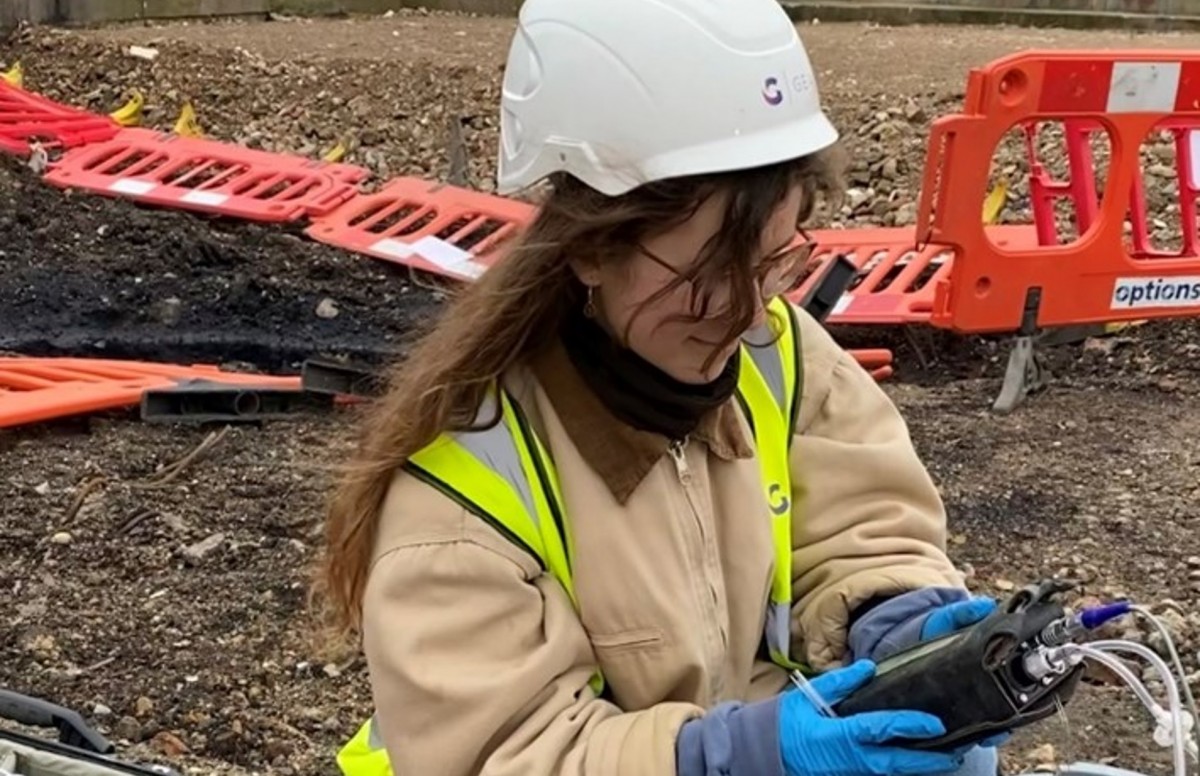The 7-Minute Rule for Geotheta
The 7-Minute Rule for Geotheta
Blog Article
The smart Trick of Geotheta That Nobody is Talking About
Table of ContentsThe Ultimate Guide To GeothetaThe Definitive Guide for GeothetaGeotheta Can Be Fun For AnyoneLittle Known Facts About Geotheta.Geotheta Fundamentals Explained

They conduct website investigations, gather samples, perform lab tests, and evaluate information to evaluate the viability of the ground for building projects - Geotechnical Engineers. Based upon their searchings for, geotechnical engineers offer recommendations for structure style, slope security, retaining frameworks, and mitigation of geotechnical threats. They work together with various other specialists, such as designers, architectural engineers, and building teams, to make sure that geotechnical factors to consider are integrated into the general project layout and application
By evaluating the behavior and residential properties of dirt and rock, they can identify possible geotechnical hazards such as landslides, soil settlement, or incline instability. Their competence aids stop failures or mishaps that might jeopardize lives and building. Right here are some detailed responsibilities and duties of a geotechnical designer: Site Examination: Geotechnical designers conduct site examinations to collect data on subsurface problems.
They interpret the information to understand the homes and habits of the soil and rock, including their strength, leaks in the structure, compaction attributes, and groundwater conditions. Geotechnical Evaluation and Layout: Geotechnical engineers assess the data gathered during site investigations to examine the security and viability of the website for building and construction jobs. They execute geotechnical calculations and modeling to assess variables such as birthing capacity, negotiation, slope security, lateral planet pressures, and groundwater circulation.
Not known Facts About Geotheta
Structure Design: Geotechnical engineers play a crucial function in developing structures that can safely sustain the desired framework. They analyze the soil problems and tons demands to figure out the appropriate structure kind, such as shallow foundations (e.g., grounds), deep structures (e.g (https://www.twitch.tv/geotheta/about)., piles), or specialized methods like soil enhancement. They consider factors such as negotiation limits, bearing capability, and soil-structure interaction to create ideal foundation styles
They assess building and construction strategies, monitor website activities, and conduct area assessments to verify that the design recommendations are complied with. If unforeseen geotechnical issues arise, they evaluate the scenario and provide recommendations for remediation or adjustments to the style. Danger Analysis and Reduction: Geotechnical engineers analyze geotechnical threats and dangers connected with the job site, such as landslides, liquefaction, or soil erosion.

Collaboration and Communication: Geotechnical designers work carefully with other professionals entailed in a project, such as engineers, architectural engineers, and building teams. Reliable interaction and cooperation are essential to incorporate geotechnical considerations right into the total job design and construction procedure. Geotechnical engineers offer technical expertise, solution questions, and guarantee that geotechnical needs are met.
Not known Factual Statements About Geotheta
Here are some kinds of geotechnical engineers: Structure Engineer: Structure designers concentrate on designing and evaluating structures for frameworks. They assess the soil conditions, lots demands, and site features to determine the most ideal structure type and design, such as superficial structures, deep structures, or specialized strategies like heap structures.
They assess the aspects affecting slope security, such as dirt homes, groundwater conditions, and slope geometry, and develop strategies to stop slope failings and alleviate dangers. Quake Engineer: Earthquake engineers concentrate on assessing and making structures to endure seismic forces. They assess the seismic hazard of a website, review soil liquefaction potential, and establish seismic design criteria to ensure the security and strength of frameworks during quakes.
They do field screening, gather samples, and evaluate the gathered information to define the soil residential or commercial properties, geologic formations, and groundwater conditions at a website. Geotechnical Instrumentation Designer: Geotechnical instrumentation engineers concentrate on tracking and measuring the actions of soil, rock, and frameworks. They install and keep instrumentation systems that keep an eye on elements such as dirt settlement, groundwater degrees, slope activities, and structural variations to examine performance and give early cautions of prospective issues.
What Does Geotheta Mean?
They perform examinations such as triaxial tests, consolidation examinations, straight shear tests, and leaks in the structure examinations to gather data for geotechnical analysis and layout. Geosynthetics Engineer: Geosynthetics designers focus on the layout and application of geosynthetic products, such as geotextiles, geogrids, and geomembranes. They make use of these products to boost dirt stability, reinforce inclines, provide water drainage remedies, and control disintegration.
They tend to be investigative individuals, which means they're intellectual, introspective, and investigative. They wonder, methodical, logical, analytical, Learn More and rational. Several of them are additionally social, meaning they're kind, generous, cooperative, person, caring, valuable, understanding, skillful, and pleasant. Does this noise like you? Take our totally free occupation test to discover if geotechnical designer is just one of your top profession matches.
In the office atmosphere, geotechnical engineers utilize specialized software program devices to do computations, produce designs, and assess information. They prepare reports, review task specs, communicate with clients and staff member, and coordinate task tasks. The workplace setting gives a conducive environment for study, evaluation, and partnership with various other professionals associated with the task.
Excitement About Geotheta
They often visit job websites to conduct website investigations, assess geotechnical conditions, and collect data for evaluation. These gos to entail traveling to various locations, often in remote or tough terrains. Geotechnical designers might carry out dirt sampling, conduct tests, and display construction activities to make certain that the geotechnical aspects of the job are being applied properly.
Geotechnical designers also work in specialized geotechnical research laboratories. In these centers, they conduct experiments, carry out examinations on soil and rock samples, and examine the design residential properties of the products. Geotechnical research laboratory engineers work extensively in these atmospheres, taking care of testing equipment, operating instruments, and taping information. They collaborate with other laboratory personnel to make sure exact and reliable testing results.
Report this page